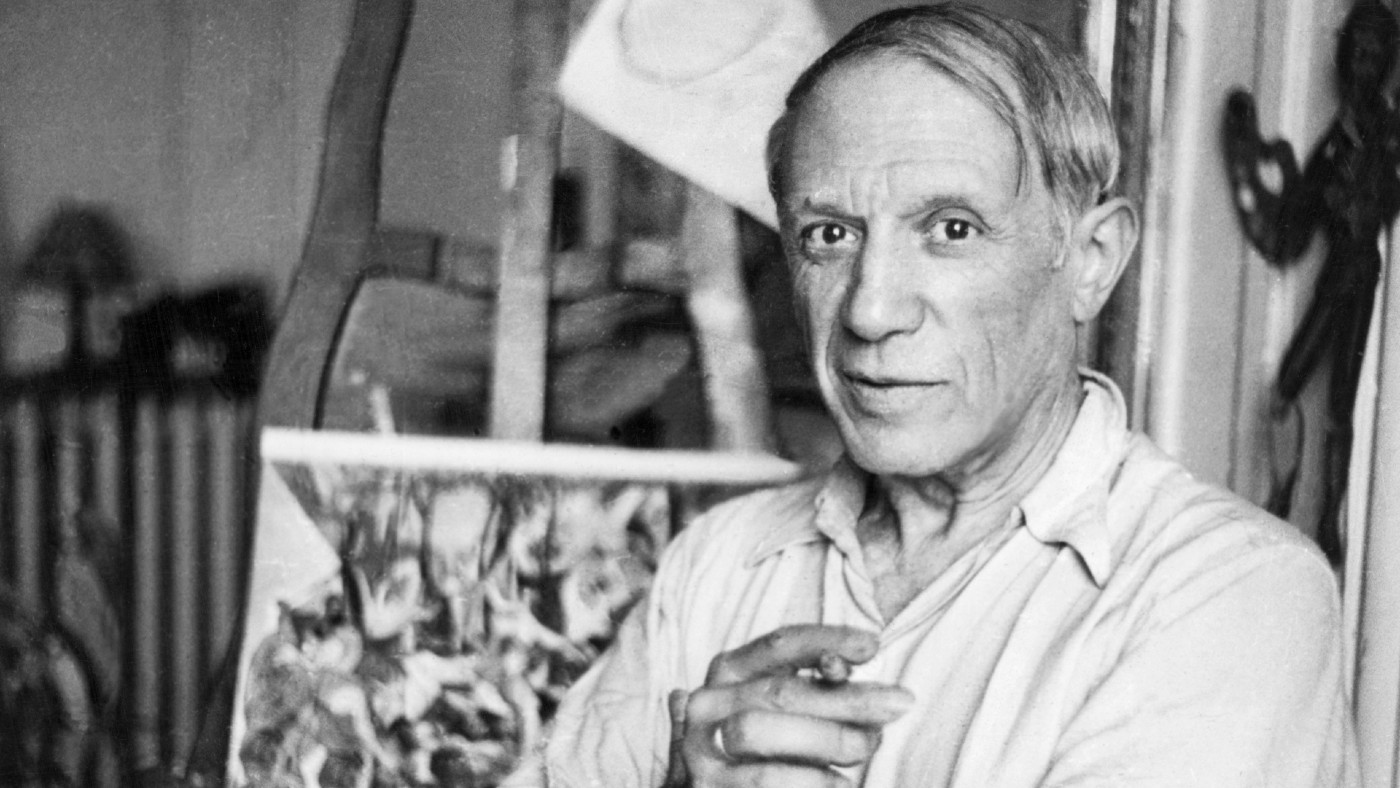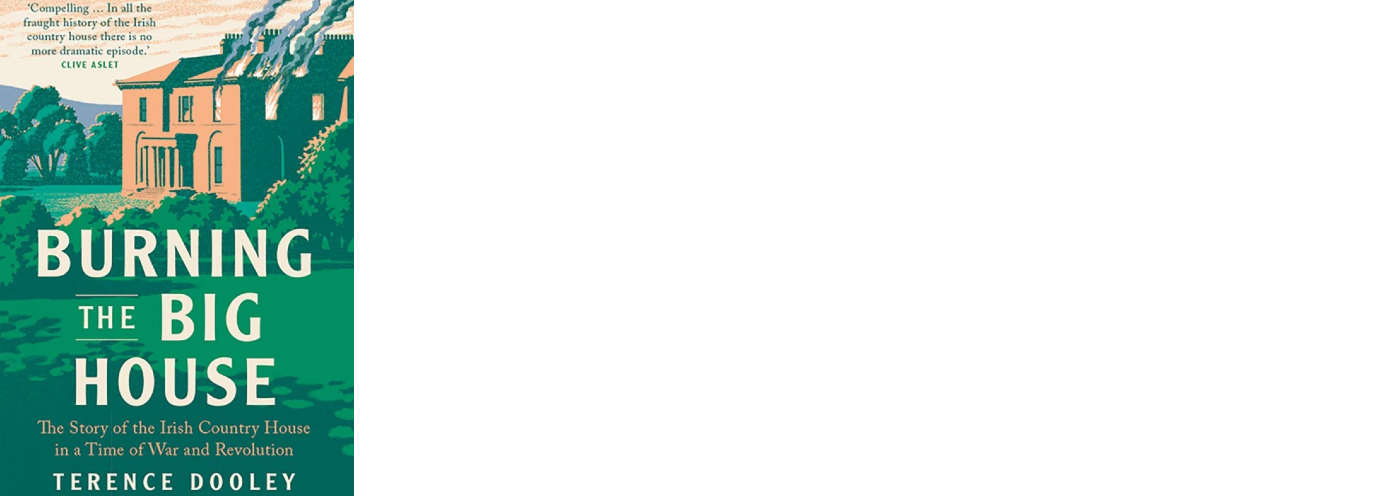A Life of Picasso: Vol. IV – a flawed but ‘astounding’ book
John Richardson’s new volume is clever and flamboyant

A free daily email with the biggest news stories of the day – and the best features from TheWeek.com
You are now subscribed
Your newsletter sign-up was successful
In this thoughtful, “impeccably researched” book, Terence Dooley narrates the “tumultuous history” of Irish country houses in the early 20th century, said Gareth Russell in The Times. During the War of Independence (1919-21) and the civil war that followed it, the IRA burned down some 300 of the country’s biggest houses – a fifth of the total. Some were buildings of great architectural value – such as the vast Palladian mansion Summerhill House in Meath, known as the “wonder of Ireland” – while others were relatively small.
It’s usually assumed that the IRA targeted the “Big House” because it was a “symbol of foreign oppression and condescension”, said Andrew Gailey in Literary Review. Expelling their Anglo-Irish owners was “an act as much moral as political” that would “herald the birth of the new state”. Yet very often, Dooley contends, the motives for the burnings were less exalted. Many, he shows, were “impromptu responses to Black and Tans atrocities”, while others were driven largely by the “desire to take land”.
The question of land – and who owned it – was of course highly emotive in Ireland, said Adrian Tinniswood in The Daily Telegraph. After the Land War of the late 19th century, pitching tenant farmers against their aristocratic overlords, much of Ireland’s farmland had been redistributed to the former. Yet “vast swathes of untenanted lands” still surrounded most country houses – a red rag to the young and landless IRA volunteers.
The Week
Escape your echo chamber. Get the facts behind the news, plus analysis from multiple perspectives.

Sign up for The Week's Free Newsletters
From our morning news briefing to a weekly Good News Newsletter, get the best of The Week delivered directly to your inbox.
From our morning news briefing to a weekly Good News Newsletter, get the best of The Week delivered directly to your inbox.
His argument will enrage some in Ireland, who prefer to see the IRA as heroic freedom fighters, not “sordid land-grabbers”. But it’s typical of Dooley’s “nuanced” approach that he accepts “the two are not mutually exclusive”. In dismantling “the myths surrounding the burning of the Big House”, he has surely written the “definitive account”.
Yale University Press 368pp £25; The Week Bookshop £19.99

The Week Bookshop
To order this title or any other book in print, visit theweekbookshop.co.uk, or speak to a bookseller on 020-3176 3835. Opening times: Monday to Saturday 9am-5.30pm and Sunday 10am-4pm.
A free daily email with the biggest news stories of the day – and the best features from TheWeek.com
-
 Political cartoons for February 15
Political cartoons for February 15Cartoons Sunday's political cartoons include political ventriloquism, Europe in the middle, and more
-
 The broken water companies failing England and Wales
The broken water companies failing England and WalesExplainer With rising bills, deteriorating river health and a lack of investment, regulators face an uphill battle to stabilise the industry
-
 A thrilling foodie city in northern Japan
A thrilling foodie city in northern JapanThe Week Recommends The food scene here is ‘unspoilt’ and ‘fun’
-
 A thrilling foodie city in northern Japan
A thrilling foodie city in northern JapanThe Week Recommends The food scene here is ‘unspoilt’ and ‘fun’
-
 Tourangelle-style pork with prunes recipe
Tourangelle-style pork with prunes recipeThe Week Recommends This traditional, rustic dish is a French classic
-
 Samurai: a ‘blockbuster’ display of Japan’s legendary warriors
Samurai: a ‘blockbuster’ display of Japan’s legendary warriorsThe Week Recommends British Museum show offers a ‘scintillating journey’ through ‘a world of gore, power and artistic beauty’
-
 BMW iX3: a ‘revolution’ for the German car brand
BMW iX3: a ‘revolution’ for the German car brandThe Week Recommends The electric SUV promises a ‘great balance between ride comfort and driving fun’
-
 Arcadia: Tom Stoppard’s ‘masterpiece’ makes a ‘triumphant’ return
Arcadia: Tom Stoppard’s ‘masterpiece’ makes a ‘triumphant’ returnThe Week Recommends Carrie Cracknell’s revival at the Old Vic ‘grips like a thriller’
-
 My Father’s Shadow: a ‘magically nimble’ love letter to Lagos
My Father’s Shadow: a ‘magically nimble’ love letter to LagosThe Week Recommends Akinola Davies Jr’s touching and ‘tender’ tale of two brothers in 1990s Nigeria
-
 Send Help: Sam Raimi’s ‘compelling’ plane-crash survival thriller
Send Help: Sam Raimi’s ‘compelling’ plane-crash survival thrillerThe Week Recommends Rachel McAdams stars as an office worker who gets stranded on a desert island with her boss
-
 Book reviews: ‘Hated by All the Right People: Tucker Carlson and the Unraveling of the Conservative Mind’ and ‘Football’
Book reviews: ‘Hated by All the Right People: Tucker Carlson and the Unraveling of the Conservative Mind’ and ‘Football’Feature A right-wing pundit’s transformations and a closer look at one of America’s favorite sports